Inter-Parliamentary Alliance on China
The Inter-Parliamentary Alliance on China is an international, cross-party alliance of parliamentarians from democratic countries focused on relations with the People's Republic of China (PRC), and specifically, the Chinese Communist Party (CCP).[1][2][3][4] It was established on June 4, 2020, on the anniversary of the 1989 Tiananmen Square protests.[5][6][7][8] The alliance has over 100 parliamentary and congressional members from 17 of the world's democratic legislatures. Each legislature represented takes turns to chair the alliance on a rotating basis.
 | |
| Formation | 4th June 2020 |
|---|---|
| Purpose | Reform democratic countries' approach to China |
| Website | www |
History

Parliamentarians speaking—and being isolated
In its founding statement, the alliance stated that "countries that have tried to stand up to Beijing have mostly done so alone — and often at great cost."[4] Many of those who first signed the declaration have been affected by overseas censorship of Chinese issues in recent years. Co-chair Andrew Hastie and fellow member James Paterson were banned from visiting China after meeting with Uyghur dissidents and writing about the threat of China to Australian democracy.[9] Germany's co-chair Michael Brand experienced "massive pressure" to delete comments about Tibet[10] and later had a travel ban imposed on him."[10] Canadian parliamentarians joined the alliance after the CCP restricted imports on some Canadian goods and detained Canadians nationals Michael Spavor and Michael Kovrig as a tit for tat for Canada's arrest of Meng Wanzhou on charges of fraud.[11] Sweden's co-chair Fredrik Malm spoke at a solidarity rally for Hong Kong in September 2019. Some weeks later China's Ambassador to Sweden, Gui Congyou addressed Swedish listeners and said, "We treat our friends with fine wine, but for our enemies we have shotguns."[12] This type of intimidating language is one of the features of China's new generation of "warrior wolf diplomats."[13] Despite this intimidation, many representatives from the world's democracies wish to maintain their "long-standing concerns over human rights and trade practices."[14]
.jpg)
COVID-19 and Hong Kong
Two contemporaneous events triggered the formation of the alliance: the COVID-19 coronavirus pandemic and Beijing's plan to criminalize dissent in the semi-autonomous territory of Hong Kong."[14]
China's "lack of transparency over the Covid-19 pandemic"[15] meant that many democratic nations felt compelled to confront the CCP. When Australia moved to hold China accountable for its actions, or inactions, around the outbreak first detected in Wuhan, China quickly imposed new tariffs on Australian barley and outright bans on some of its beef,[4] then went on to warn Chinese citizens against traveling to the country."[16] Conservative Canadian MP and co-chair, Garnett Genuis said, "We don’t want to be in a situation where individual countries are targeted and isolated one at time."[11]

Beijing's plans to criminalise dissent, became the final impetus for the new alliance. Baroness Kennedy, condemned "unilateral introduction of national security legislation in Hong Kong"[17] and later would later reach across the aisle to form the permanent alliance with Iain Duncan Smith. Joining them came Marco Rubio and Bob Menendez, both longtime critics of the CCP and a key supporter of US legislation targeting China over its actions against Hong Kong's autonomy.[4]
In short, the emergence of the alliance indicates "there is growing backlash against China’s increasing assertiveness.”[18] Between the human rights abuses and the intimidation of democratic nations meant that democratic legislators, such as Reinhard Bütikofer felt they "cannot return to business as normal."[14] For many, this decision came with a sense of shame, that the free world had been "naive" in its approach to China, that, as Iain Duncan Smith put it, there had been an "unfounded" hope that free markets would lead Beijing to democratic reforms, but this hadn't happened.[14]
Purpose
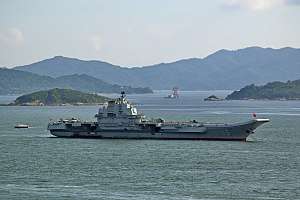
The alliance appears to have a defensive posture, seeing China's relationship to the world, at least under Communist Party general secretary Xi Jinping, as being a threat to many democratic values. Overall, the group aims "to help counter what they say is the threat China’s growing influence poses to global trade, security and human rights."[4] The Inter-Parliamentary Alliance on China has a five-fold mission:
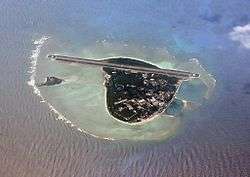
1. Safeguarding international rules-based order
In the aftermath of World War II global institutions were formed, chiefly the United Nations, the World Bank and the International Monetary Fund[19] so that international questions, from trading arrangements to the recognition of territorial borders, are settled according to agreed rules, rather than mere force. Members of the alliance, such as Mike Gallagher of the United States, are concerned that China is undermining the rules based order, with, for example, "illegitimate efforts to build and militarize islands in the region."[20]
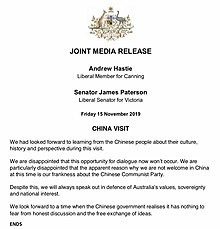
2. Upholding of human rights
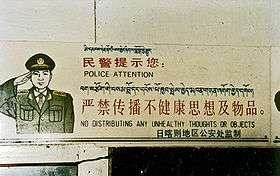
Many members are driven by their concern for China's "egregious human rights violations"[21] — to use the phrase of British member, David Alton — especially towards its own minority groups, particularly Uyghurs and Tibetan people. Canadian member Dan Albas has expressed concerns about the Chinese Government's "crackdowns on legitimate protests and concentration camps for Uighur Muslims." Similarly, Fabian Molina has moved in the Swiss legislature that "Stop crimes against humanity in Xinjiang or suspend free trade with China."[22] Founding co-chair Baroness Kennedy has a particular concern for the poor treatment of lawyers and human rights defenders in China.[23] Some members are hopeful that new instruments for holding China to account on its human rights abuses will emerge. Swedish member Ann-Sofie Alm has stated her hope for Magnitsky Act sanctions because "a crime against human rights, regardless of where it is committed, must be punishable.”[24] Lianchao Han (a fellow of the Hudson Institute) and Jianli Yang (a survivor of Tiananmen Square) described the formation of the alliance as "a significant step toward confronting China collectively on its human rights abuses and other important issues."[25]
3. Promoting trade fairness
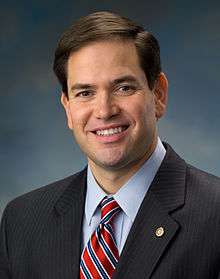
The activity of selling goods in order to eliminate or damage a competitor is considered "dumping."[26] Currently many members of the alliance see China as engaging in dumping in their own home markets.
4. Strengthening security
For several founding co-chairs, such as Australia's Andrew Hastie, China's actions on the world stage, particularly in the South China Sea have revealed the regime to be "revisionist and expansionist"[27] revisionist China is a test of "our alliances and our security like no other time."[28] For co-chair Gen Nakatani (a former Minister of Defence in Japan) the activity of the People's Liberation Army in the region being "dangerous actions" that have a direct "impact on our national security."[29]
5. Protecting national integrity

Members of the alliance, including Germany's Margarete Bause, are aware of China's attempts to "encroach"[30] on their democratic systems. Several member nations, such as Australia and Sweden, have experienced China actively seeking to influence their institutions, such as Norway's awarding of its Nobel prize to Liu Xiaobo[31] Sweden's awarding Gui Minhai[9] or the Australian Labor Party receiving cash donations from patrons connected to the United Front Work Department and its affiliates.[32] Preserving national integrity means preventing CCP attempts at interference in the running of national institutions such as parliaments and the media. Hence their stated principle that, "Democratic states must maintain the integrity of their political systems, and actively seek to preserve a marketplace of ideas free from distortion."[33]
Campaigns
1. Treatment of predominantly Muslim minorities in Xinjiang
Members of the Alliance have been leading calls for political action in response to allegations of human rights abuses in the Xinjiang-Uyghur Autonomous Region. The campaign was launched after an Associated Press report by Professor Adrian Zenz suggesting a Chinese Government birth prevention programme in Xinjiang.[34]
IPAC co-chairs signed a joint statement in response to the revelations calling for a United Nations led investigation into the alleged atrocities.[35] The statement was followed up by interventions from members of the Alliance in the European Parliament, the Italian Senate, the British House of Commons and the United States Congress.[36][37][38][39]
2. Hong Kong (National Security Law)
The passing of the National Security Law in Hong Kong was met with severe condemnation and calls to action from members of the Alliance. A joint statement from the co-chairs of the Alliance called for an international “lifeboat” scheme for Hong Kong citizens at risk of political persecution, and for countries to “review and recalibrate” relations with China in order to reduce “strategic dependency”.[40]
In a coordinated bi-partisan response IPAC members Senator Marco Rubio, Senator Bob Menendez, Representative Mike Gallagher and Representative Joaquin Castro introduced the Hong Kong Safe Harbor Act in both chambers of the US Congress.[41]
IPAC members also made public statements on the issue in Australia, the European Union, Italy, Japan, Lithuania and the United Kingdom.[42][43][44][45][46][47]
3. No Extradition to Hong Kong
The Alliance is coordinating efforts to call for no extradition to Hong Kong, where it claims the rule of law is severely compromised following the passing of the National Security Law.[48]
The campaign saw quick success as Australia and Canada suspended their extradition treaties with Hong Kong.[49][50] New Zealand, the United Kingdom and the United States have announced a review of extradition arrangements in response to the campaign.[51]
Membership
.jpg)

The alliance exists to promote and protect democracy globally, its members has been described as "one of the most geographically and politically diverse coalitions ever."[7] The founding 18 members[3] of the alliance came from the legislatures of eight nations, Australia, Canada, Germany, Japan, Norway, Sweden, the United Kingdom, the United States as well as the European Parliament. In a statement, the founding co-chairs said:
China under the rule of the Chinese Communist party represents a global challenge... When countries have stood up for the values and human rights, they have done so alone, sometimes, at great cost. No country should have to shoulder this burden alone.... The Inter-Parliamentary Alliance on China has been created to promote a coordinated response between democratic states to challenges posed by the present conduct and future ambitions of the People’s Republic of China. By developing a common set of principles and frameworks that transcend domestic party divisions and international borders, our democracies will be able to keep the rules-based and human rights systems true to their founding purposes.[1]
The formation of the alliance was dismissed by the government of the People's Republic of China with its representative in London, Chen Wen, saying, “It's a misinterpretation of China’s foreign policy and a misreading of the current world situation. China is a force for positive change.”[52]
Within a week of its launch, the number of members had increased from 18 to over 100 lawmakers.[53] With members of the New Zealand Swiss and Ugandan legislatures joining in June and July 2020, the total number of democratic nations in the alliance has increased from 8 to 18, including all five of the Five Eyes security alliance. Each nation is represented in the Alliance by two co-chairs, senior politicians who lead the Alliance's work in that nation.
The work of the Alliance membership is supported in an operational capacity by a team comprising the Central Secretariat.[54] This is led by Luke de Pulford, director of the Arise Foundation and co-founder of the Coalition for Genocide Response.[55] A number of individuals act as advisors to the Alliance, including Anne-Marie Brady, Wei Jingsheng and Robert Suettinger.[54]
References
- Graham-Harrison, Emma (2020-06-05). "Global alliance formed to counter China threat amid rising tensions". The Guardian. ISSN 0261-3077. Archived from the original on 2020-06-06. Retrieved 2020-06-06.
- Liu, Natalie (June 5, 2020). "Alliance of Free World Legislators Takes Aim at CCP-led China". Voice of America. Archived from the original on June 6, 2020. Retrieved June 6, 2020.
- Gunia, Amy (June 5, 2020). "Lawmakers Form Global Coalition to Tackle China 'Challenge'". Time. Archived from the original on June 5, 2020. Retrieved 2020-06-06.
- Marlow, Iain (June 5, 2020). "Lawmakers in Eight Countries Form New Alliance to Counter China". Bloomberg News. Archived from the original on June 5, 2020. Retrieved June 6, 2020.
- Fisher, Lucy (June 5, 2020). "MPs from eight nations voice fears over China". The Times. Archived from the original on June 6, 2020. Retrieved June 6, 2020.
- Bourke, Latika (2020-06-04). "MPs from eight countries form new global coalition to counter China". The Age. Archived from the original on 2020-06-05. Retrieved 2020-06-05.
- Rogers, Benedict (June 6, 2020). "Parliamentarians From Around the World Unite to Discuss the China Challenge". The Diplomat. Archived from the original on June 7, 2020. Retrieved June 6, 2020.
- Eckert, Paul (June 8, 2020). "Lawmakers Group Seeks Global Response to 'Defining Challenge' of China". Radio Free Asia. Archived from the original on June 8, 2020. Retrieved June 8, 2020.
- "China cools Sweden business ties after minister awards prize to Gui Minhai". The Guardian. 2019-12-20. ISSN 0261-3077. Archived from the original on 2020-03-20. Retrieved 2020-06-19.
- Welle (www.dw.com), Deutsche. "China refuses entry to German chair of human rights committee | DW | 11.05.2016". DW.COM. Archived from the original on 2018-09-21. Retrieved 2020-06-19.
- "What are Irwin Cotler, Marco Rubio and Garnett Genuis doing in a new alliance? Aiming to take on China's influence". Today News Post. 2020-06-04. Retrieved 2020-06-19.
- "How Sweden copes with Chinese bullying". The Economist. ISSN 0013-0613. Archived from the original on 2020-04-22. Retrieved 2020-06-19.
- "Interpreting China's 'Wolf-Warrior Diplomacy'". thediplomat.com. Archived from the original on 2020-06-19. Retrieved 2020-06-19.
- Brennan, David (5 June 2020). "From U.S. to Japan, Lawmakers of Opposing Parties Unite Across World to End 'Naive' China Strategy". Newsweek. Archived from the original on 17 June 2020. Retrieved 19 June 2020.
- "18 Western lawmakers form group to take 'tougher stance' on China". South China Morning Post. 2020-06-05. Archived from the original on 2020-06-16. Retrieved 2020-06-19.
- Ip, Greg (2020-06-17). "A United Front on China Starts to Take Shape". Wall Street Journal. ISSN 0099-9660. Archived from the original on 2020-06-17. Retrieved 2020-06-19.
- "Hong Kong braces for fresh wave of protests over Beijing security laws". Australian Financial Review. 2020-05-24. Archived from the original on 2020-06-08. Retrieved 2020-06-19.
- Hua, Sha (2020-06-12). "Global Coalition of Legislators Faces Challenges Countering China". Wall Street Journal. ISSN 0099-9660. Archived from the original on 2020-06-17. Retrieved 2020-06-19.
- "The black, white and grey in defining the "rules-based order"". lowyinstitute.org. Archived from the original on 2020-06-14. Retrieved 2020-06-19.
- News, A. B. C. "Recent developments surrounding the South China Sea". ABC News. Archived from the original on 2019-07-02. Retrieved 2020-06-19.
- Alton, David (2020-01-31). "Op Ed from The Diplomat and Op Ed from the New York Post. Huawei, 5G, and the small matter of human rights. In Parliament I pressed the Secretary of State to say what consideration has been given to unbridled surveillance, mass imprisonment, relentless propaganda, slave labour, and egregious human rights violations, "which are too high a price to pay for subsidised technology that endangers our security, compromises British values, and a belief in human rights"". David Alton. Archived from the original on 2020-03-14. Retrieved 2020-06-19.
- "Geschäft Ansehen". parlament.ch. Retrieved 2020-06-20.
- Merritt, Chris (26 April 2009). "Chinese 'justice' faces UN scrutiny". The Australian. Retrieved 19 June 2020.
- "Chinese Ambassador to Sweden Reported As Human Rights Violator to the U.S." NTD News. 2019-07-11. Archived from the original on 2019-07-12. Retrieved 2020-06-19.
- Tolliver, Sandy (2020-06-17). "US takes steps to stop China's abuse of Uyghurs — as should other countries". TheHill. Archived from the original on 2020-06-18. Retrieved 2020-06-19.
- Lacey, Simon. "China used anti-dumping rules against us because what goes around comes around". The Conversation. Archived from the original on 2020-06-15. Retrieved 2020-06-19.
- Hastie, Andrew (2020). "BREAKING THE CHINA SUPPLY CHAIN: HOW THE 'FIVE EYES' CAN DECOUPLE FROM STRATEGIC DEPENDENCY - RESPONSES" (PDF). Henry Jackson Society: 39. Archived (PDF) from the original on 2020-05-20. Retrieved 2020-06-19.
- Shields, Bevan (2019-08-07). "'Like no other time in history': Australia facing unprecedented national security test". The Sydney Morning Herald. Archived from the original on 2020-06-12. Retrieved 2020-06-19.
- "Defense Minster Nakatani: South China Sea Has An Affect on Japanese Security". USNI News. 2015-02-05. Archived from the original on 2020-04-20. Retrieved 2020-06-19.
- Welle (www.dw.com), Deutsche. "China 'encroaching' on Germany's parliament: Green lawmaker | DW | 06.08.2019". DW.COM. Archived from the original on 2020-05-07. Retrieved 2020-06-19.
- "China angry at dissident's Nobel". BBC News. 2010-10-08. Archived from the original on 2020-04-14. Retrieved 2020-06-19.
- "China is infiltrating Australia on multiple fronts, from politics to business, via United Front". NewsComAu. 2020-06-10. Archived from the original on 2020-06-17. Retrieved 2020-06-19.
- O’Keeffe, Kate (2020-06-08). "China Steps Up Moves to Influence Diaspora Communities". Wall Street Journal. ISSN 0099-9660. Archived from the original on 2020-06-17. Retrieved 2020-06-19.
- "Calls for UN probe of China forced birth control on Uighurs". AP NEWS. 2020-06-30. Retrieved 2020-07-13.
- "Campaign: Treatment of predominantly Muslim minorities in Xinjiang". ipac.global. Retrieved 2020-07-13.
- "Cina, Europarlamento: "Contro uiguri è genocidio"". Adnkronos. Retrieved 2020-07-13.
- Radicale, Radio (2020-07-01). "Conferenza stampa dell'Alleanza Interparlamentare sulla Cina e del Global Committee for the Rule of Law "Marco Pannella"". Radio Radicale (in Italian). Retrieved 2020-07-13.
- "UK MPs cite India-China clash, demand review of dependence". Hindustan Times. 2020-07-01. Retrieved 2020-07-13.
- "Rubio, Menendez, McGovern, Smith Lead Bipartisan, Bicameral Letter on Chinese Government Atrocities in Xinjiang". U.S. Senator for Florida, Marco Rubio. Retrieved 2020-07-13.
- "Campaign: Hong Kong". ipac.global. Retrieved 2020-07-13.
- "US bill grants refugee status to Hong Kong protesters". Nikkei Asian Review. Retrieved 2020-07-13.
- "https://twitter.com/ipacglobal/status/1279005780226826241". Twitter. Retrieved 2020-07-13. External link in
|title=(help) - "https://twitter.com/miriammlex/status/1277957718611865603". Twitter. Retrieved 2020-07-13. External link in
|title=(help) - "La Cina strangola Hong Kong, il governo Conte tace: al Senato il grido dell'Italia che non ci sta". ilmattino.it (in Italian). Retrieved 2020-07-13.
- "「日本は香港人の移住先として対応を」国家安全法を受け、"犯罪者認定"覚悟で在日香港人たちが記者会見(ハフポスト日本版)". Yahoo!ニュース (in Japanese). Retrieved 2020-07-13.
- "https://twitter.com/ipacglobal/status/1278348497075519490". Twitter. Retrieved 2020-07-13. External link in
|title=(help) - "https://twitter.com/ipacglobal/status/1278342286041067520". Twitter. Retrieved 2020-07-13. External link in
|title=(help) - "No Extradition to Hong Kong". ipac.global. Retrieved 2020-07-13.
- "Australia suspends Hong Kong extradition treaty". BBC News. 2020-07-09. Retrieved 2020-07-13.
- "Canada suspends its extradition treaty with Hong Kong, eyes immigration boost". CNBC. 2020-07-04. Retrieved 2020-07-13.
- News, Taiwan. "New Zealand revisiting extradition treaty with HK after passage of national security law". Taiwan News. Retrieved 2020-07-13.
- "World at One - 05/06/2020 - BBC Sounds". bbc.co.uk. Archived from the original on 2020-06-06. Retrieved 2020-06-08.
- Bourke, Latika (2020-06-11). "China tortured detained British diplomat, says UK government". The Sydney Morning Herald. Archived from the original on 2020-06-12. Retrieved 2020-06-12.
- "Team". ipac.global. Retrieved 2020-07-13.
- "Luke de Pulford". ipac.global. Retrieved 2020-07-13.